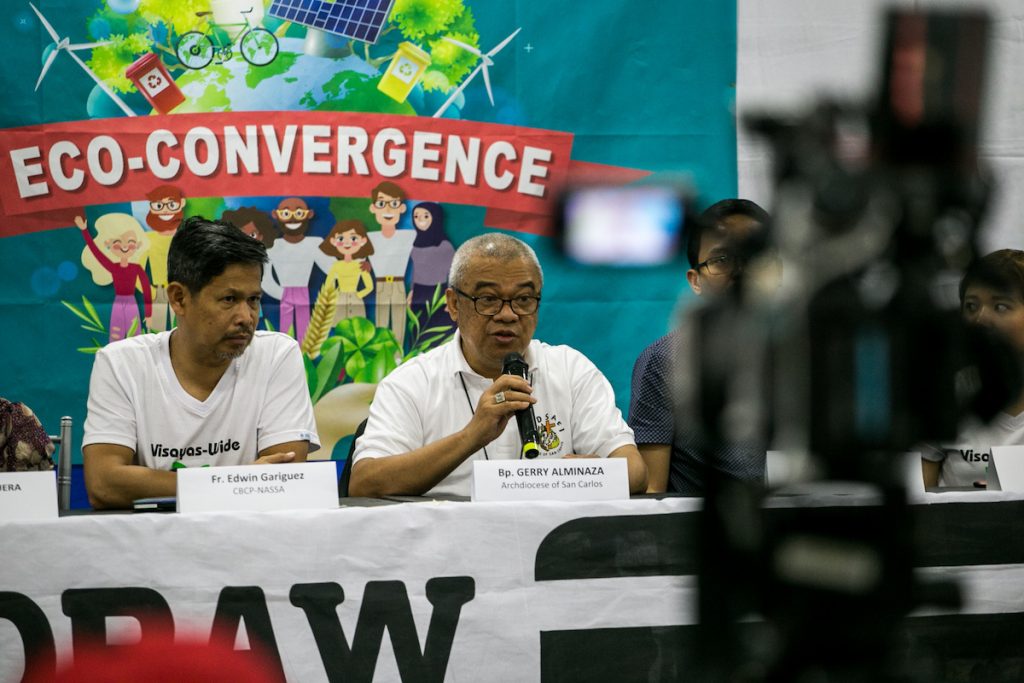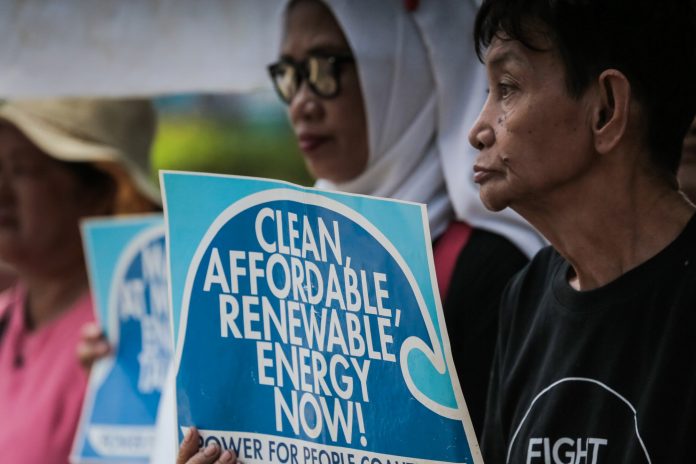A Catholic bishop in the central Philippines lambasted San Miguel Corporation’s (SMC) plan to replace a “dirty-energy project” with another “polluting fossil fuel project.”
“Why start with another fossil fuel when the call to address our climate crisis is to progressively replace without delay all polluting fossil fuels?” said Bishop Gerardo Alminaza of San Carlos.
The prelate was referring to the announcement made by SMC Global Power Holdings Corp, the power arm of SMC, that it will convert a proposed 300-megawatt (MW) coal plant in San Carlos City in Negros Occidental into a gas-powered facility.
Early this month, SMC president Ramon S. Ang said the company is “moving away from building new coal power facilities.” He said the move “is in line with all the major sustainability initiatives we have undertaken these past couple of years.”
Bishop Alminaza, however, said the use of fossil fuels as energy sources “are specifically identified as forms of tyranny over creation.”
“In essence, fossil fuels reinforce a consumerist mindset of prideful, greedy, and gluttonous control over nature – that humanity can extract and consume fossil fuels on our own terms,” said the prelate.
SMC announced that it would no longer pursue its 328-MW coal plant project in Davao region. The corporation has also said it has canceled three coal-fired power plants in the provinces of Cebu and Quezon.
The power firm said it has already initiated a “transition to cleaner energy” with the construction of the US$1-billion Battery Energy Storage System (BESS) facilities.
Bishop Alminaza urged SMC to “work with the various stakeholders in Negros to advance and developm Renewable Energy sources instead of pushing for fossil gas.”

The Island of Negros is known as the country’s Renewable Energy Island, which has the potential to lead in the country’s transition to renewable energy amid the worsening climate crisis.
A study released by the Center for Energy, Ecology, and Development (CEED) and the Diocese of San Carlos in September 2020 indicated that it is possible for Negros to be powered with “100 percent renewable energy.”
In total, renewable energy comprises 95 percent of the island’s Installed Capacity Mix, with solar having the biggest share at 47 percent.
Pro-environment groups welcomed the decision of SMC to cancel its coal project in Negros but warned against the threats of the fossil gas project to the community and the environment.
Rodne Galicha, executive director of Living Laudato SI Philippines, said SMC has a moral responsibility to respect Negros Island as the renewable energy capital of the country.
“Putting a fossil gas facility there is like injecting a deadly virus in a healthy body,” he said.
Lawyer Avril De Torres of CEED said SMC keeps on contradicting its Renewable Energy commitments by keeping itself as a key player in the country’s “remaining planned coal fleet and massive fossil gas expansion.”
She said SMC must prove its commitment to sustainable energy by completely ending its coal pipeline with no stopover to fossil gas.
SMC also announced a hydropower plant project in Malay town in Panay Island that has a potential total capacity of 300MW.
The project, which pro-environment groups oppose because it threatens a protected area and an indigenous people community, will build two dams in the two major rivers of Malay.
Galicha said SMC’s projects in Negros and in Panay are “false energy solutions. He urged the corporation’s shareholders “to make a stand against these false solutions.”
“Allowing these to happen, shareholders become accomplices in a future crime – ecocide,” said Galicha.









